
Angl_yaz_8kl_Spotlight_Anglysky_v_fokuse
.pdf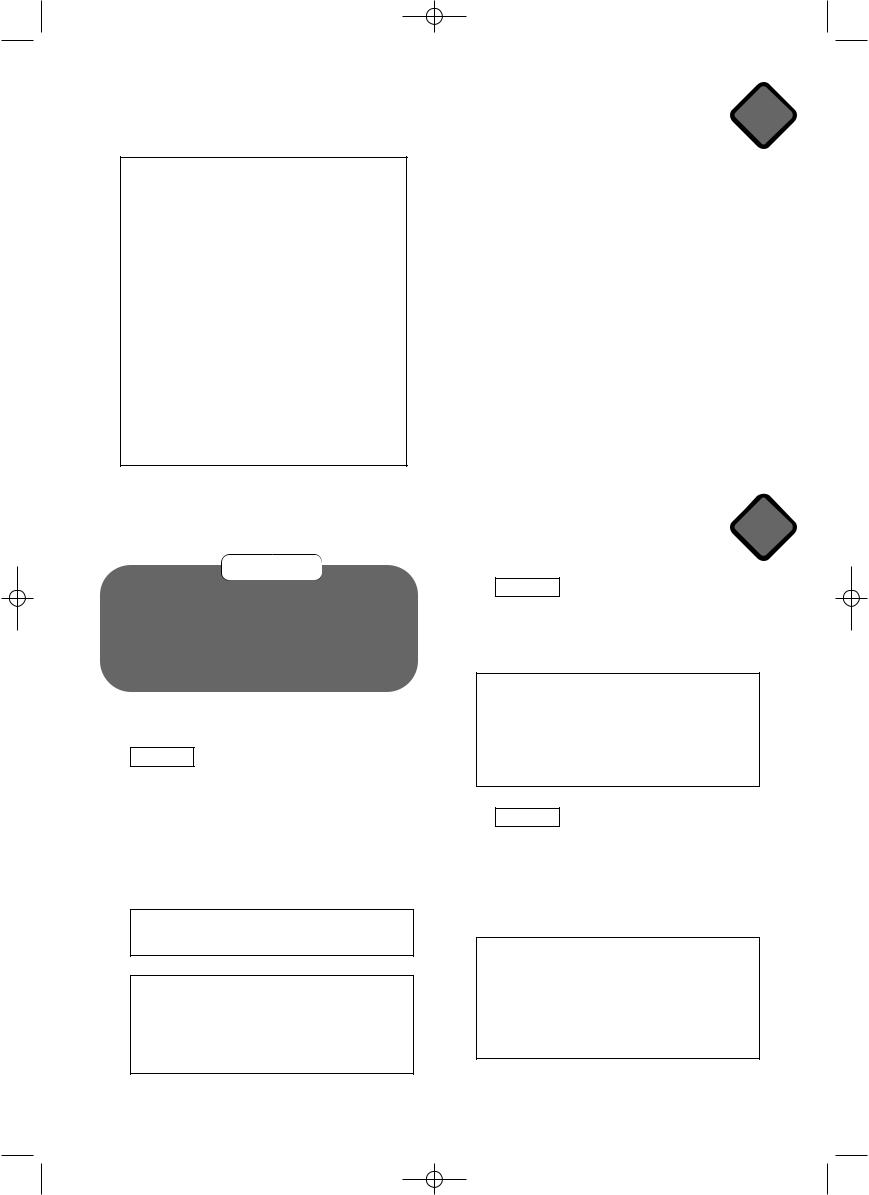
Spotlight 8 Mod 5 Ts 09-09-09 17:07 Page 91
English in Use 5f
Suggested Answer Key
Dear Steven,
I hope you are well. I really want to tell you about my trip to Paris. It was great and I especially enjoyed walking along the Seine River. It’s so beautiful. Everyday, I looked forward to eating at the sidewalk cafes. One afternoon, we went shopping along the Champs de’Lyse and I bought a great handbag. I planned to visit all the great museums, but I only managed to see the Louvre. I had the chance to practise my French in the shops and restaurants. It was a wonderful experience! Tell my about your summer. How was your trip to the seaside? Write Soon!
Love,
Tanya
Reading: reading for specific information Speaking: describing a picture; discussing a text Listening: listening for specific information Writing: an article on an interesting animal from your country
Reading
1Focus Reading/listening for specific
information
ñElicit the name of the animal in the picture.
ñHave Ss think up questions about the animal in the text and write them down in their notebooks.
ñSs read/listen to recording and try to find the answers to their questions.
Answer Key
It is a Highland coo.
Suggested Answer Key
Is it easier to farm Highland coos?
Do they all have the same colour of hair?
Are they found anywhere else other than Scotland?
Culture Corner |
5 |
2a Focus Reading for specific
ñSs complete task individually.
ñHave Ss compare answers with a and check.
Answer Key
1 F |
2 F |
3 T |
4 T |
5 |
1Nessie is a legendary monster from Ness.
2 Highland coos are easy to spot.
bFocus Understanding vocabulary
ñRefer Ss to the words/phrases in bold and elicit meanings.
ñCheck meanings in Word List.
ñAllow Ss time to write new vocabulary in their notebooks.
Answer Key
legendary ― very famous creature ― animal
spot ― see, catch sight of
Highland ― from the Highlands of Scotland breed ― type of animal
91

Spotlight 8 Mod 5 Ts 09-09-09 17:07 Page 92
5 |
Culture Corner |
fringe ― hair that hangs over the forehead legend ― old and popular story
impress ― make an impression
grazing grounds ― land where animals feed crossed ― mixed two types of animal shaggy ― hairy
miss the chance ― lose the opportunity to do sth
3Focus Describing a picture/ discussing the
text
ñIn pairs, Ss describe the picture, using the vocabulary from the text.
ñSs tell their partner what they found interesting in the text.
ñMonitor activity and assist as necessary.
Suggested Answer Key
The Highland coo has shaggy red hair and a fringe which goes over its eyes, long horns and a big wet nose.
ñThey can survive on poor grazing grounds.
ñThey are a cross of two kinds of cow.
ñThey have become a national symbol of Scotland.
4Focus Writing an article about an
interesting animal that lives in your country.
ñRefer Ss to the rubric and check for understanding.
ñSs write their articles, answering the questions in the rubric.
ñInvite Ss to read their articles in class and ask for feedback.
ñAlternatively, assign task as HW.
Suggested Answer Key Siberian Tiger
If you go to Russia, you will probably not see a Siberian Tiger. They are very rare because they are an endangered species. They live in a very small part of Russia, in the AmurUssuri region of Primorsky and Khabarovsky Krai.
They are very attractive creatures. They are different from other tiger species because their fur is lighter orange in colour. They have widely spaced brown stripes rather than black and a white chest and belly. Their fur is thick and long to help them cope in freezing temperatures and their feet are large to help them walk in the snow. An average male weighs around 200–230 kg. Females are smaller and weigh 100–167 kg.
The Siberian Tiger is an excellent hunter. It feeds mostly on wild boar, red deer, elk and bear. An adult needs to eat around 9 kg of food a day to survive, but they can eat up to 50 kg in just one meal!
Unfortunately, the loss of forests and poaching has meant that there are only about 450 Siberian Tigers left in the wild. Several hundred exist in captivity. Many of these can be found in China.
92
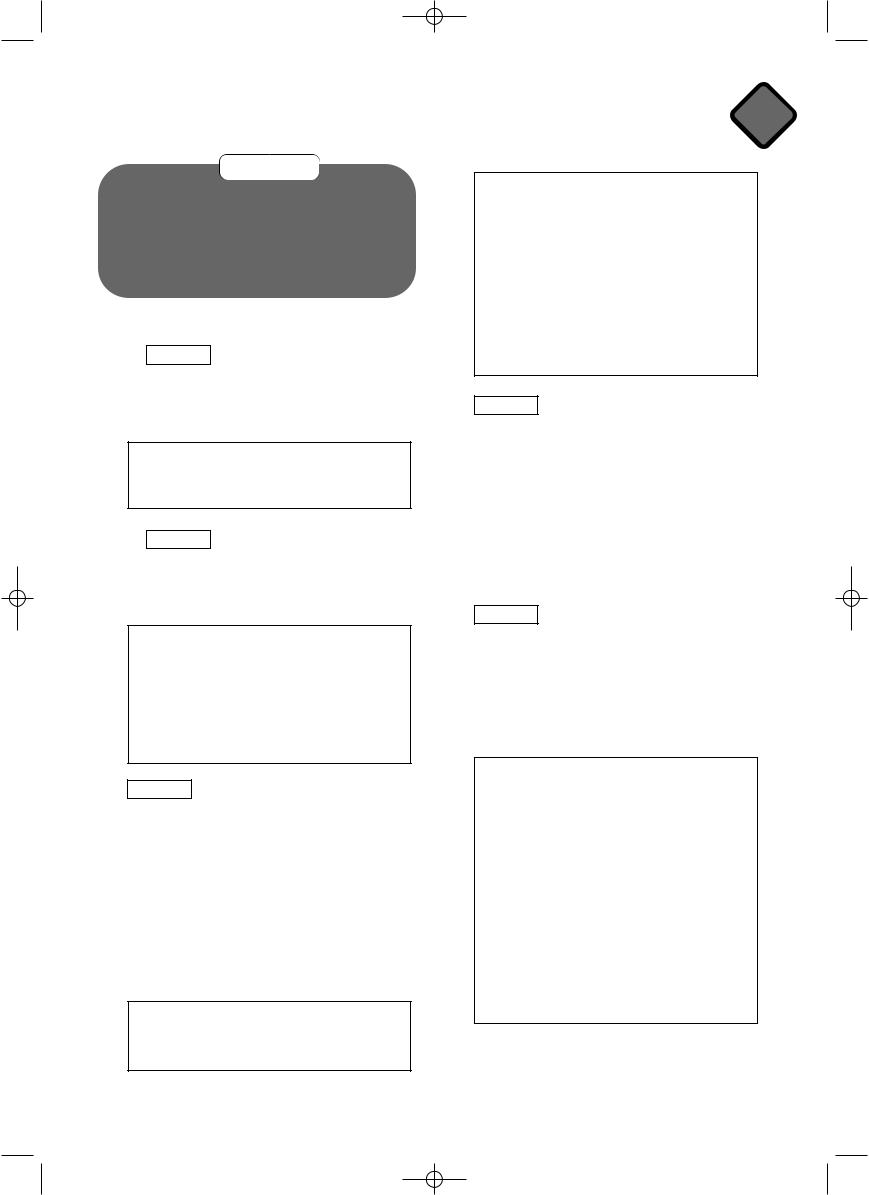
Spotlight 8 Mod 5 Ts 09-09-09 17:07 Page 93
Across the Curriculum – Science |
5 |
Objectives
Reading: reading for specific information; identifying headings of paragraphs in a text; following instructions
Speaking: discussing the text; discussing the meaning of a quote
Listening: listening for specific information
Reading
1a Focus Introducing the topic of the text
ñRefer Ss to the pictures. Elicit discussion on the natural phenomena and if they have experienced any.
Suggested Answer Key
I have seen hail in real life but I haven’t seen a tornado.
bFocus Reading for specific information
ñHave Ss read the text and find the answer to the question in the rubric.
ñElicit answers in class and discuss.
Answer Key
Tornadoes are formed when warm air near the earth’s surface rises and meets with cold air. Hail is formed when raindrops are blown up into the clouds by strong winds. Instead of falling to the ground immediately, the raindrops freeze.
2Focus Identifying headings of paragraphs in
a text.
ñRead with Ss the rubric and check for understanding. Explain that a heading should summarise the main focus of the paragraph and that Ss should underline key words when reading.
ñHave Ss read text and match headings to paragraphs.
ñInvite a few Ss to read out paragraphs with their headings and key words.
Answer Key
1f happen in various parts of the world, at any time of year
2d spinning, whirling, shape of a funnel or tube, twist, twisting rope
3 e scale, how strong tornadoes are, calculate strength, damage a tornado causes
4a can be as small as peas or as big as cricket balls
5 c start to fall, Before they reach the ground, bounces ... up and down, rise and fall
6 b make quite a noise
3Focus Understanding vocabulary
ñHave Ss read text and find the meanings of the words from the rubric in the text.
ñSs compare answers with a partner and check.
Answer Key |
|
forceful ― violent |
made ― formed |
different ― various |
chunks ― lumps |
leave ― disappear |
created ― formed |
harm ― damage |
|
|
|
4Focus Discussing the text
ñInvite Ss to tell the class what they found interesting in the text.
ñMonitor activity and assist as necessary.
ñInvite other Ss to describe what it might be like to experience either of the two disasters. Ask for feedback from the class.
Suggested Answer Key
ñTornadoes can reach speeds of more than 250 mph.
ñThere is a scale to measure how strong tornadoes are.
ñThere was a hailstone as large as 44.5 centimetres in width!
I was visiting my grandfather’s farm one afternoon, when the sky started to turn dark grey and it became very windy.
In the far distance I noticed a long dark funnel or tube. I realised it was a tornado that was moving towards the farm. I suddenly felt very scared and screamed for my grandparents.
93

Spotlight 8 Mod 5 Ts 09-09-09 17:07 Page 94
5 |
Across the Curriculum – Science |
Fortunately, they have an underground shelter where we climbed down to protect ourselves. The tornado passed over us. It was a very frightening experience with a horrible noise as the tornado ripped roofs from buildings and tossed heavy objects like trees into the air. When it finally passed, I was so relieved and very happy to be alive!
5Focus Listening for specific information
ñRefer Ss to the gaps in the instructions.
ñHave Ss listen to the recording and fill in the gaps.
ñSs compare answers with a partner and check.
Answer Key |
|
|
|
|
1 |
paper |
3 |
hole |
5 top |
2 |
tape |
4 |
on (to) |
|
6Focus Following instructions.
ñIn preparation for the task, in pairs have Ss list the ingredients they will need and bring them to the next class.
ñPairs read and follow the instructions on how to create a tornado.
ñMonitor activity and assist as necessary.
(Ss’ own answers)
7Focus Understanding the meaning of a
quote
ñRefer Ss to the quote.
ñInvite Ss to tell what they think the meaning is and discuss.
Suggested Answer Key
The weather is something we all have in common and is often used to start a conversation, especially when there is a sudden change in it.
5 |
Progress Check |
Check 5 and Look at Module 6 should be done in one lesson.
Answer Key |
|
|
|
|
|
|
|
|
|
|
||
1 |
1 |
endangered |
4 |
pollution |
4 |
1 |
used to drink |
|
4 |
use to |
|
|
|
2 |
avalanche |
5 |
earthquake |
|
2 |
getting used to |
|
5 |
isn’t used to |
||
|
3 |
tornado |
|
|
|
3 |
am used to |
|
|
|
|
|
2 |
1 |
collection |
4 |
appearance |
5 |
1 |
for |
|
3 |
by |
5 |
on |
|
2 |
protection |
5 |
invitation |
|
2 |
off |
|
4 |
in |
|
|
|
3 |
guidance |
|
|
|
|
|
|
|
|
|
|
|
|
|
|
|
6 |
1 |
into |
|
3 |
in |
5 |
in |
3 |
1 |
to lock |
4 |
help |
|
2 |
out |
|
4 |
on |
|
|
|
2 |
worrying |
5 |
seeing |
|
|
|
|
|
|
|
|
|
3 |
to visit |
|
|
7 |
1 |
a |
2 c |
|
3 |
d |
4 b |
94
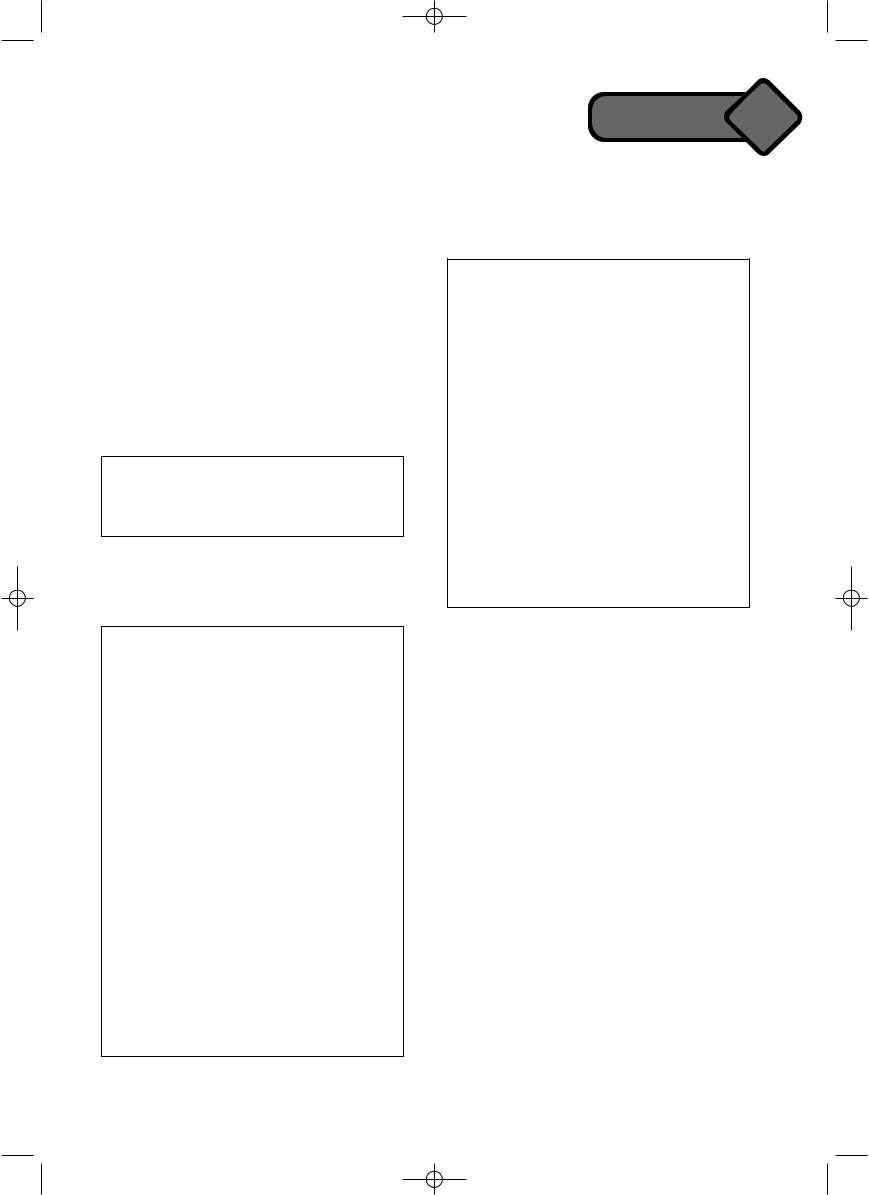
Spotlight 8 Mod 6 Ts 09-09-09 17:08 Page 95
Culture Exchanges
Before you start …
ñWork through the questions with the class, asking follow up questions to encourage Ss to expand on their answers as much as possible. e.g. What natural disasters have occurred in our country? How can we reduce pollution and traffic in our cities?
ñMake sure Ss understand this section and use the prompts to recycle vocabulary seen in Module 5.
Look at Module 6
ñRefer Ss to the title of module, Culture Exchanges, and invite them to suggest what they think it means and what they expect to learn from the module.
Suggested Answer Key
The title refers to learning and experiencing other cultures and we will probably learn about other countries and travel.
ñAsk Ss to look through the module and find the page numbers for each of the pictures. Ask questions to stimulate a discussion about them.
Suggested Answer Key
Focus Ss attention to pic.1 (p.100).
T: What page is the picture on?
S1: It’s on page 100. It’s an unusual building. T: Do you know where and what it is?
S2: I think it’s in Australia and it’s the opera house there.
T: Why is it important?
S3: It’s a tourist attraction because of its architecture and location.
Pic 2 (p. 102)
What is this a picture of? Why is it important? What monuments have you visited? Why?
Pic 3 (p. 91)
What is this a picture of? Why and when do people do this? What kinds of activities do you like to do on vacation?
Pic 4 (p. 96)
What kind of boat is in the picture? What does it do? Why are tourists interested in riding on this kind of boat? Have you ever gone on a ride on something unusual? What was it like?
Module 6
Find the page number(s) for…
Allow Ss time to browse through the module and find the items. Ask them to explain what each item is and elicit simple information about each of them.
Suggested Answer Key tips for travellers (p. 95)
What are tips? How do they help? Have you ever used tips for something? Why?
a letter (p.98)
What are some reasons we write letters? When do you write letters and why? Do you use different language depending on if it’s for a friend or someone you don’t know that well?
an advert (p. 98)
What is the advert about? Where would we find such an advert? Have you ever answered an advert? What about?
a statue of a Buddha (p. 106)
What is a Buddha? Have you ever seen one? Where? What are monuments? Why do we visit them? What are some famous monuments in our country?
Go through the rest of the sections with your Ss and point out that by the end of the module they will know how to perform the tasks listed.
Explain that the module has:
―a Listening and Speaking section
―a Culture Corner
―a Going Green section
―an English in use section
Ask Ss to look at the relevant pages and elicit what each section is about.
Listen, read and talk about …/Learn how to …/ Practise …/Write/Make …
As described in the relevant section in Module 1.
95
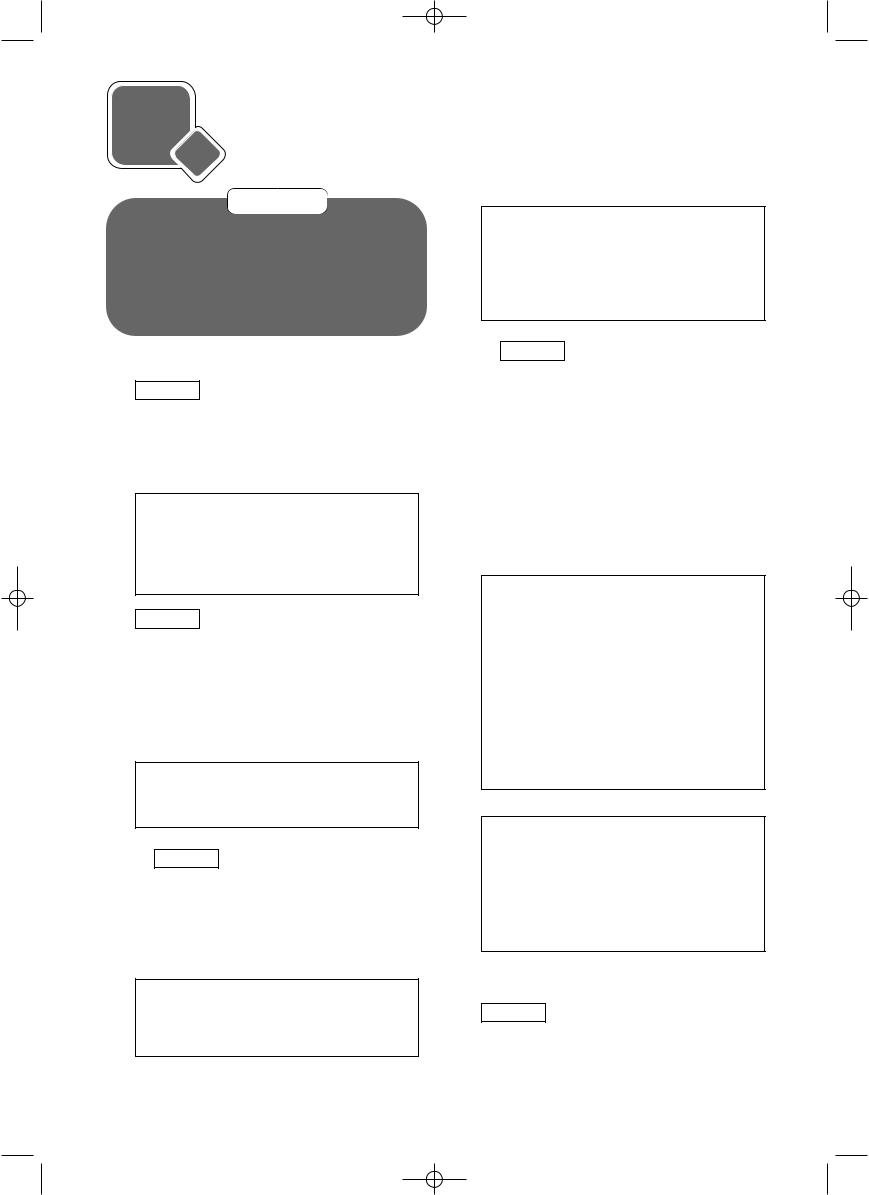
Spotlight 8 Mod 6 Ts 09-09-09 17:08 Page 96
6 a Reading & Vocabulary
Objectives
Vocabulary: related to travel activities Reading: reading for confirmation
Speaking: role playing (a holiday you would like to take)
Listening: listening for confirmation Writing: writing about travel
Listening & Reading
1Focus Introducing the topic of the text.
ñHave Ss look at the pictures and listen to the recording.
ñAsk Ss to imagine the scene and elicit answers to the questions in the rubric.`
Answer Key
I am in Yakutia, Russia. It is freezing cold.I hear the sound of the reindeers’ bells as they run across the snow. I feel like it is Christmas ― I am so happy!
2Focus Predicting text content/reading and
listening for confirmation
ñRefer Ss to the title of the text and discuss meaning.
ñElicit from Ss what they think the text will be about.
ñSs listen, read and check their answers.
Suggested Answer Key
I think the text is about some of the places we can visit and what we can do there.
3 a) Focus Reading for specific information
ñRead rubric with Ss and check for understanding of questions asked.
ñSs read and answer questions individually.
ñInvite Ss to read out answers in class and check.
Answer Key |
|
|
|
|
|
1 |
C |
3 |
C |
5 |
D |
2 |
B |
4 |
C |
6 |
A |
means of transport: reindeer sled, horse, camel, wagon, on foot, snowmobile geographical features: valleys of the Lena River, desert, Dades Gorge, Atlas Mountains, beaches, sand, (varied) landscapes, unspoilt countryside, Wyoming, Arctic Ocean, The Arctic
b)Focus Understanding vocabulary
ñRefer Ss to the bold words in the text.
ñSs complete matching task individually and check answers with a partner.
ñHave Ss find meaning in own L1. Allow time for Ss to write down new vocabulary in notebooks.
ñSs complete sentences individually and check with their partner.
ñHave Ss discuss with their partner which holiday they would like to go on and why?
ñMonitor activity and assist as necessary.
Answer Key
unusual or special ― unique thought about ― wondered photographs ― snaps undamaged ― unspoilt different ― varied
local ― native impressive ― majestic under ― beneath
1 |
snaps |
3 |
wondered |
2 |
varied |
4 |
beneath |
Suggested Answer Key
I’d like to go on the ‘Camel Riding in Morocco’ holiday because I have always wanted to visit Morocco.There’s lots to do and see, for example, travel across the desert on a camel, visit historic sites and relax on beautiful beaches.
Vocabulary
4Focus Practising new vocabulary
ñRefer Ss to list of activities in the rubric and elicit meanings.
96
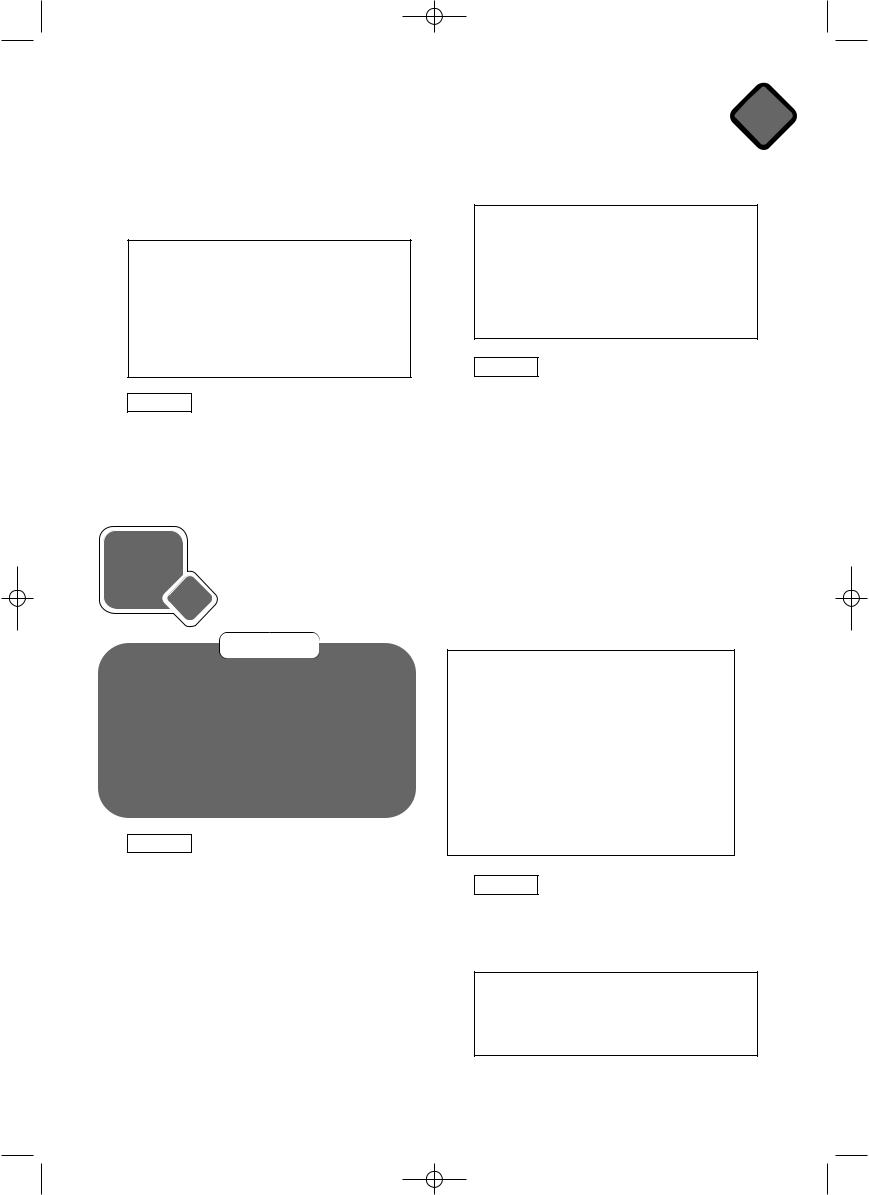
Spotlight 8 Mod 6 Ts 09-09-09 17:08 Page 97
Reading & Vocabulary 6a
ñ Invite Ss to act out exchanges in class for feedback.
Suggested Answer Key
A: I’d like to go to the Caribbean one B: Really? What would you like to do
A: I’d like to lie on the beach all day and a good tan.Where would you like to
B: I’d like to go to Iceland. I’d like to volcanoes and explore nature. etc
6 Focus Writing about travel
ñ Read the rubric with Ss and check for understanding.
ñ Allow Ss time to write sentences.
ñ Ss compare sentences with a partner. ñ Monitor activity and assist as necessary.
6 b Listening & Speaking
Objectives
Vocabulary: related to holiday problems Reading: reading for specific information Speaking: role playing (describing problems & sympathising); role playing (holiday events); role playing (a holiday that went wrong)
Listening: listening for specific information; identifying stressed syllables in phrases
Writing: writing about holidays
1Focus Describing pictures/activating
vocabulary
ñRead with Ss the phrases in the rubric and elicit meanings.
ñInvite Ss to describe pictures like in the example, using the phrases.
ñCheck for understanding.
Answer Key
Picture B shows someone running after a plane. It seems that/looks as if he has missed his flight. He seems to be in a panic.
Picture C shows two people by the sea. They are sitting on sun loungers but it is raining. It seems that/looks like the weather has got bad. They seem to be very unhappy.
Picture D shows someone looking at the signpost with a map in his hand. It seems that/looks like he has lost his way.
2Focus Listening for specific information
ñHave Ss listen to recording and match speakers to problems in Ex. 1.
ñSs compare answer with a partner.
Answer Key
Ann ― the weather getting bad Laura ― getting sunstroke Tony ― car breaking down
97
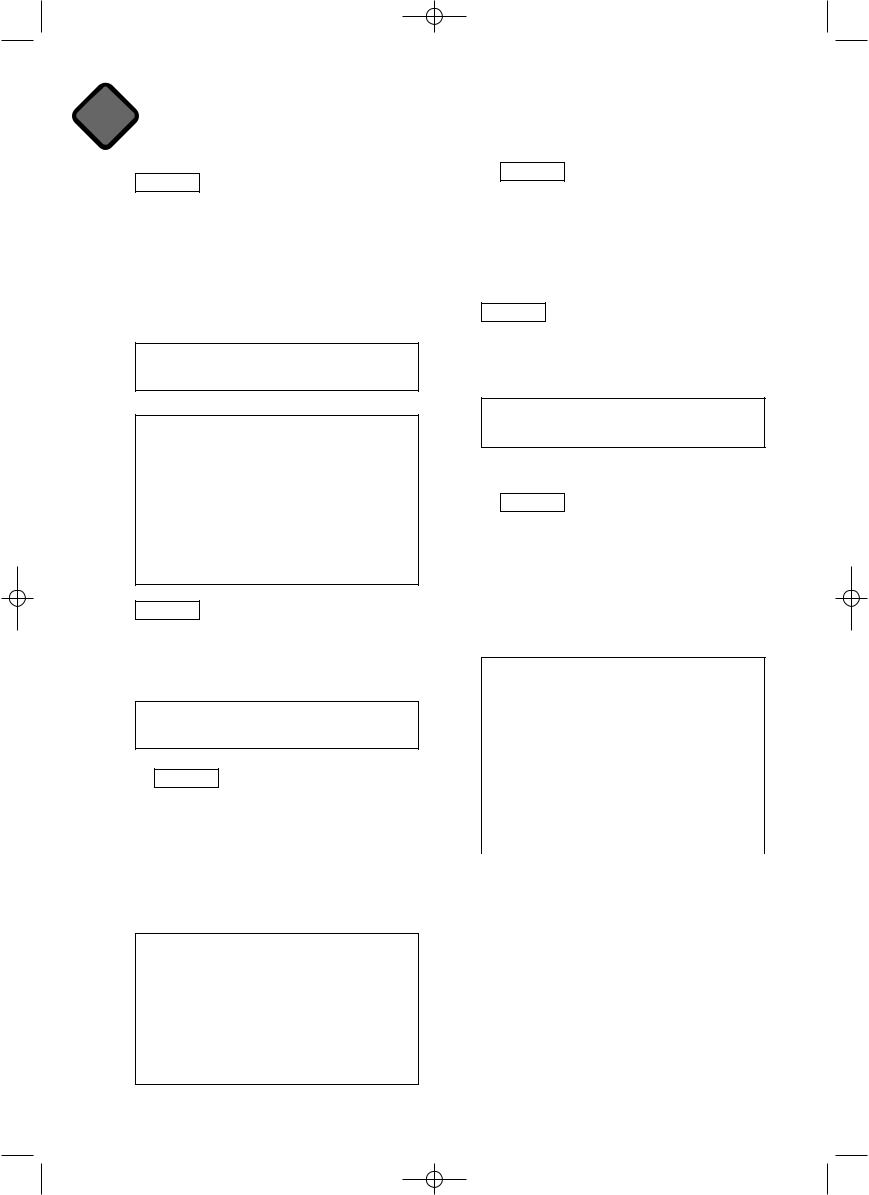
Spotlight 8 Mod 6 Ts 09-09-09 17:08 Page 98
6b Listening & Speaking
English
Focus Role playing (describing problems & sympathising)
Refer Ss to the phrases in the box and elicit meanings in Ss’ L1.
In pairs, Ss act out exchanges similar to the example, using phrases from the box.
Monitor activity and check for understanding of phrases.
Answer Key
(Answers according to Ss’ L1)
Suggested Answer Key
A:How was your holiday? Did you have a nice time?
B:You’ll never guess what happened!
A:What? What happened?
B:I missed my flight home and had to spend 24 hours at the airport waiting for the next one.
A: Oh, you poor thing!etc
Focus Listening for specific information
Have Ss listen to recording.
Elicit answers to the question in the rubric and check.
Answer Key
Isabelle visited Greece, Italy, and Spain.
Focus Reading for specific information
ñWrite on board two columns with the headings “good” and “bad”.
ñHave Ss read individually the dialogue.
ñElicit from the Ss the good and bad experiences the speaker in the dialogue had on holiday. Write them in the correct column.
Answer Key
Good experiences: Greece was beautiful, Italians were friendly, Italian cuisine was great.
Bad experiences: got sunstroke in Greece, got seasick on the ferry on the way to Italy, got purse stolen in Barcelona while waiting for a bus.
b)Focus Consolidating vocabulary
ñIn pairs, have Ss read out the dialogue exchanges roles.
ñMonitor activity and assist as necessary.
(Ss’ own answers)
Listening
6Focus Listening for specific information
ñHave Ss listen to recordings and answer questions individually.
ñSs compare answers and check.
Answer Key |
|
|
|
1 C 2 C |
3 A |
4 B |
5 A |
Intonation
7 a) Focus Identifying stressed syllables in
phrases/understanding phrases
ñHave Ss listen to recording and mark stressed syllables in phrases.
ñSs compare answers with a partner and listen again to check.
ñInvite Ss to match phrases to feelings and discuss meanings.
Answer Key
1 That’s ABsolutely BRILLiant!
2 That REAlly drives me mad.
3 OH thank GOODness!
4 REAlly? What happened?
5 I don’t QUITE understand that.
6WHY do these things KEEP happening to me.
1 |
d |
3 |
c |
5 |
a |
||
2 |
f |
4 |
e |
6 |
b |
||
|
|
|
|
|
|||
|
|
|
|
Role playing (holiday events) |
|||
b) |
|
Focus |
|||||
ñIn pairs Ss act out exchanges about the events listed in the rubric, using phrases from Ex. 7a.
ñRefer pairs to the example exchange as a guideline to their exchanges.
ñMonitor activity and assist as necessary.
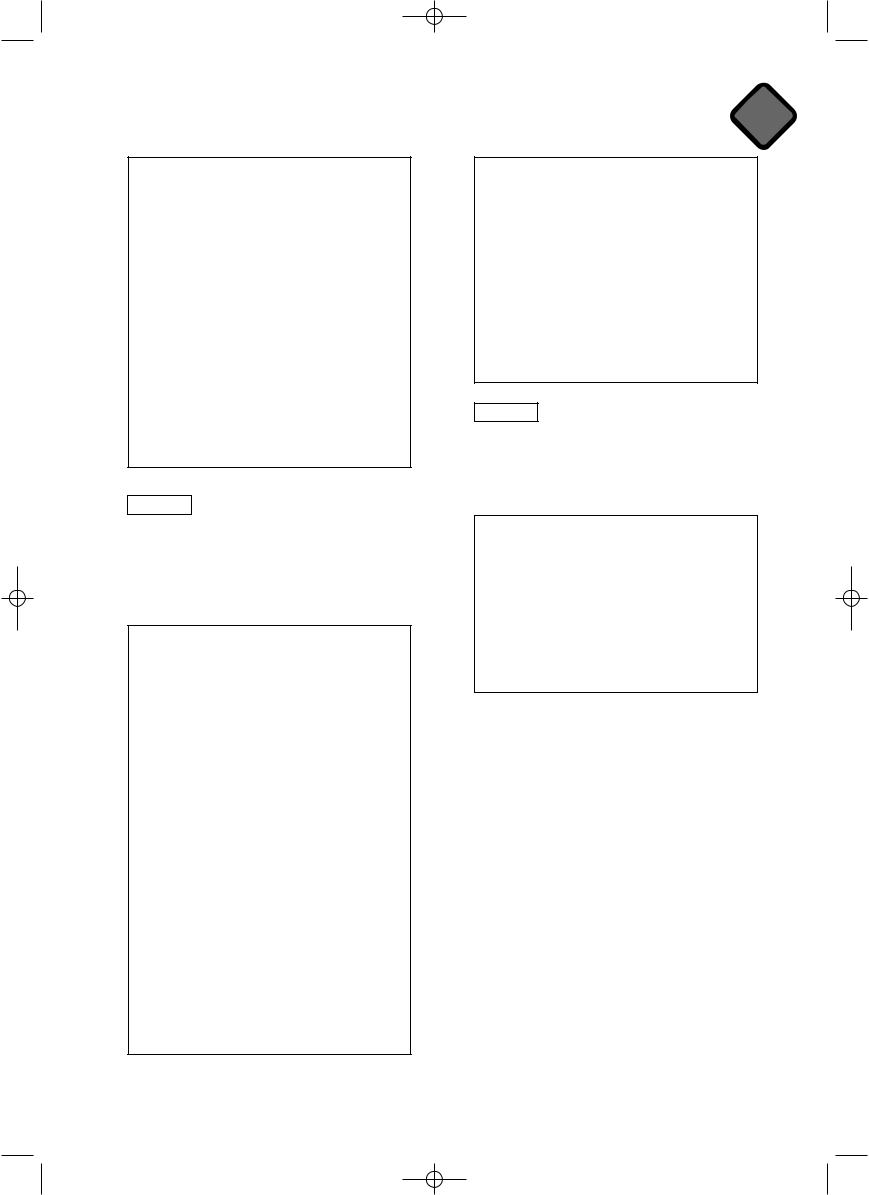
Spotlight 8 Mod 6 Ts 09-09-09 17:08 Page 99
Listening & Speaking 6b
Answer Key
A:I’m sorry, sir. We can’t seem to find your reservation.
B:Really? What happened?
A:I’m sorry. It looks like your luggage has got lost again.
B:Why do these things keep happening to me?/That drives me mad.
A:I’m sorry, madam. You can’t take photographs inside the palace.
B:I don’t quite understand that.
A:Your room has a wonderful view of the sea.
B:That’s absolutely brilliant!
A:Paul, I’ve just had an accident in my car.
B:Really? What happened?
Speaking
8 Focus Role playing (a holiday that went
Ned: Fantastic. The food is great, if you spicy food! And it wasn’t expensive either. should come with me next year ― I’m
to go back, you know. Paula: You are?
Ned: Yes. You see, I definitely need to co-drive. I lost my way and had to extra two hundred kilometres.
Paula: That’s so annoying! But you got to lot more of the countryside, didn’t you? Ned: Yes. I’ve got some amazing show you …
9Focus Writing about holidays
ñHave Ss review unit for vocabulary.
ñAllow Ss time to write their sentences.
ñIn pairs, Ss read their sentences to each other.
ñMonitor activity and assist as necessary.
wrong
ñIn pairs, Ss act out a dialogue using the phrases in Ex. 1 and the dialogue in Ex. 5 as a guideline.
ñSs record their dialogues and listen to check.
ñMonitor activity and assist as necessary.
Suggested Answer Key
Paula: Welcome back, Ned! How was your holiday?
Ned: Hi, Paula. It was good, but a few things went wrong.
Paula: What happened?
Ned: The first day everything was perfect. The weather was brilliant and I lazed on the beach. Florida is beautiful, you know.
Paula: I’ve never been myself. Do you recommend it?
Ned: Be careful when you go. When I was there the weather turned bad all of a sudden. There were huge storms ― so I had to stay indoors.
Paula: What did you do?
Ned: I spent a lot of time in shopping malls and in my hotel room reading!
Paula: How awful! Did anything else happen? Ned: Well, yes! I actually lost my passport as well. I had to get a new one, so I spent quite a lot of time at the Embassy. But, I still had time to go to Mexico.
Paula: What was it like?
Suggested Answer Key
Did I tell you that my luggage got stolen on my trip to Florida!
I got sea sick on the ferry to Italy but it didn’t spoil my holiday.
You’ll never guess what happened to me on my trip to India!
My trip was awful! I got sunstroke, missed my flight and had my wallet stolen! etc
99

Spotlight 8 Mod 6 Ts 09-09-09 17:08 Page 100
6 c Grammar in Use
Objectives
Grammar: reported speech; said/told; reported the imperative; reported questions
1Focus Introducing reported speech.
ñRead the Theory Box and example with Ss and check for understanding.
Answer Key
As in Theory Box
2Focus Understanding the differences
between direct and reported speech
ñRead the table with Ss and check for understanding.
ñHave Ss identify changes in examples from direct to reported speech.
ñElicit answers from Ss and write them on the board under headings direct and reported speech.
Answer Key
Direct Speech |
|
Reported Speech |
|
|
|
is |
→ |
was, that, no |
(Present Simple) |
|
quotation marks, |
travelled |
→ |
(Past Simple) |
(Past Simple) |
|
had travelled, that, |
|
|
she, previous, no |
have done |
→ |
quotation marks, |
(Present Perfect) |
|
(Past Perfect) |
|
|
had done, that, she, |
will travel |
→ |
no quotation marks, |
(Future Simple) |
|
(Past Perfect) |
|
|
would travel, that, |
am looking |
→ |
he, no quotation |
(Present |
|
marks, |
Continuous) |
|
(Would) |
|
|
was looking, that, he, |
can’t wait |
→ |
no quotation marks, |
(Modal) |
|
(Past Continuous) |
|
|
couldn’t wait, that, |
|
|
she, no quotation |
|
|
marks |
|
|
(Modal) |
|
|
|
100
3Focus Understanding “said” and “told”
ñRead the examples in the rubric and discuss (explain that told is used when someone says something to someone specific).
ñHave Ss complete task individually.
ñInvite Ss to read out answers in class and check.
Answer Key |
|
|
|
|
1 |
told |
3 |
said |
5 said (that) |
2 |
said (that) |
4 |
told |
|
4Focus Practising reported speech
ñRead through rubric with Ss and check for understanding.
ñInvite different Ss to report speech in rubric, paying careful attention to verb tense changes.
ñCheck and discuss Ss’ answers.
Answer Key
He said it was the most thrilling experience he had ever had.
He said he had spent five days in Edinburgh and that it had been amazing.
He said he sometimes got lonely.
He said he couldn’t carry all his stuff around easily.
He said that he was flying to Ireland and that if he had time, he would visit Cardiff too.
5 a) Focus Understanding reporting the
imperative
ñRead the examples with Ss and note differences from the direct speech to the reported speech.
ñElicit how the imperative is reported.
Answer Key
We report the imperative using tell + sb + (not) to–infinitive.
b) Focus Practising reporting the
imperative
ñHave Ss complete task individually.
ñSs compare answers with a partner and check with Grammar Reference section.
